Scott Snyder returns with American Vampire 1976 and a "reckoning with both the past and the present"
Snyder and Rafael Albuquerque bring their vampire epic American Vampire into modern times
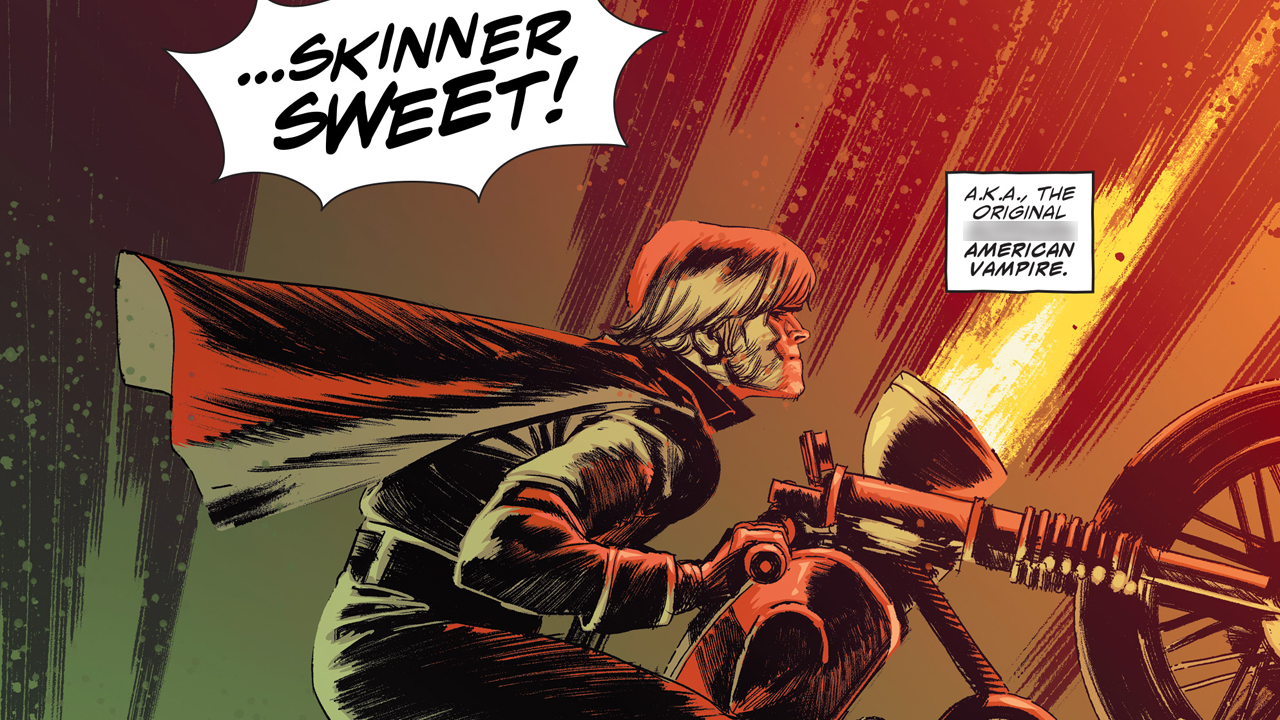
Pearl Jones, Skinner Sweet, and the American Vampire gang return for a new volume this week with American Vampire 1976. In this new era of American Vampire, creators Scott Snyder and Rafael Albuquerque have reunited to explore the historic events of 1976 through the supernatural lens of vampires.
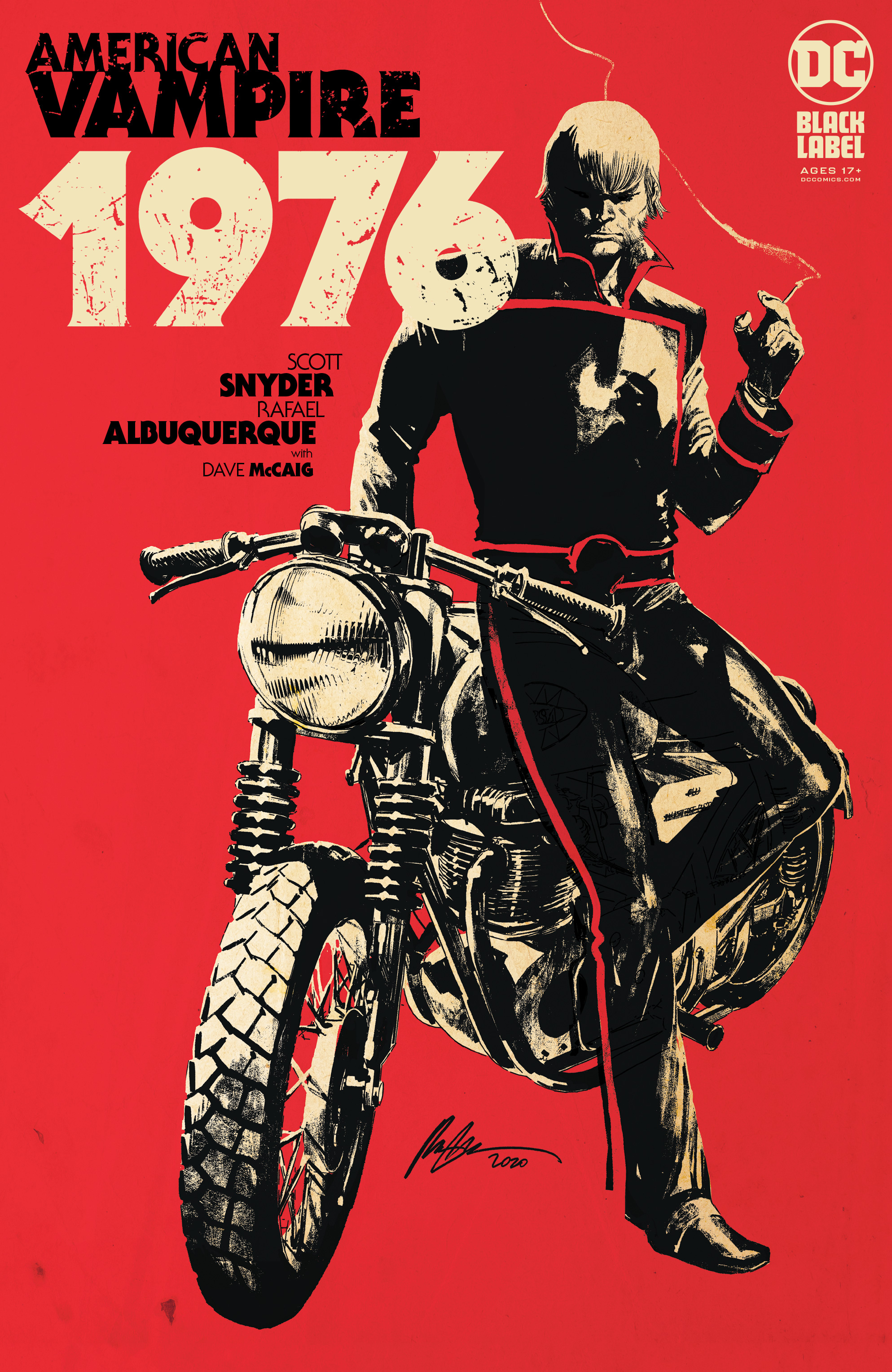
"The book opens on Skinner Sweet working outside of Vegas doing death-defying Evel Knievel-style stunts, trying to die," Snyder said recently. "There’s a kind of Son of Sam plot in New York City with Cal and Travis, a political thriller plot with Felicia, and all sorts of '70s iconography. It’s my favorite arc so far."
With American Vampire 1976 #1 (of 9) debuting this week, Newsarama spoke with Snyder about the franchise's return - and it's segueing into more modern-day stories.
Newsarama: Scott, following a few years hiatus, what was it like jumping back into the world of American Vampire?
Scott Snyder: It was so weirdly easy. I was so nervous about it. I re-read the whole series, cover to cover - the anthologies, everything. And I was really worried. What if the characters felt strange to inhabit again? And it was just the opposite. It was like the minute I started writing Skinner and Pearl it was like coming home. It's never been as easy to step back into something.

It just made me realize I loved all the things that I've worked on, I'm proud of all of them, but American Vampire really is my favorite. It's my home base and it's the most me out of any book that I do. Other books are really particular aspects of my interests or my emotionality. Like Wytches is one that's a really deep dive into a particular fear.
Whereas Metal is about why superheroes have been so important to me over the years, but American Vampire is everything at once. It's history, horror, soap opera, character - all of it.
Comic deals, prizes and latest news
Get the best comic news, insights, opinions, analysis and more!
It really has been a joy to return to. We've been thinking about this arc for so long at this point, and it was in the original documents of the series 10 years ago where we would reach the point where we're at right now. It's just so exciting to finally be here.
Nrama: This is the first storyline in which we'll spend a majority of time in the modern-day, relatively speaking. What were some things you wanted to tackle with Skinner, Pearl, and the gang as we head to present times?
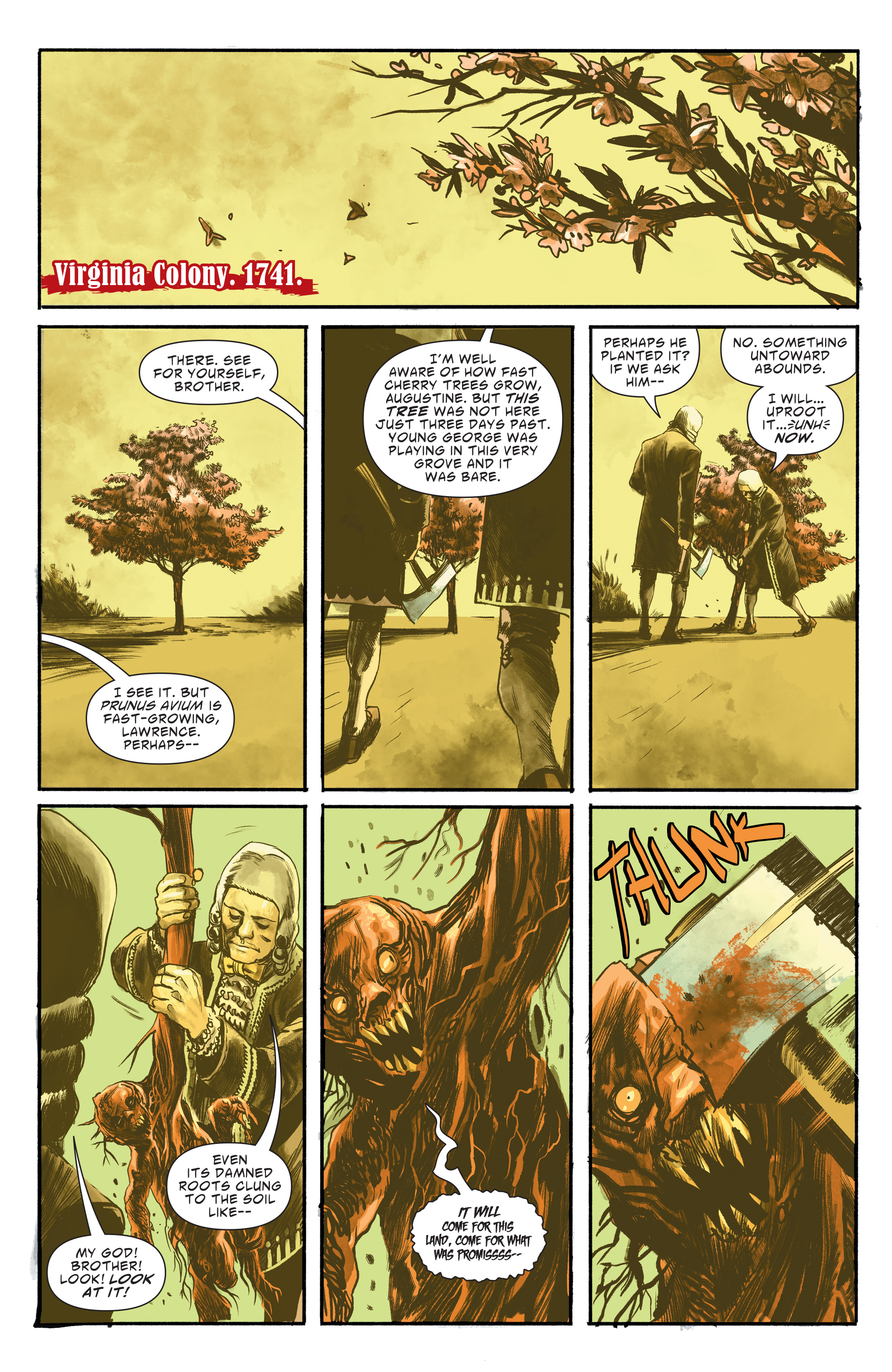
Snyder: The idea was always to the end this march towards the present at the bicentennial because it was such an interesting moment to me – 1976. On the one hand, there's all of this desire to celebrate 200 years of history, and then at the same time, there's all this reckoning with both the past and the present and how so much of it is ugly at that moment.
Seeing reflectively as ugly in terms of some of the sins of the past and America's really dark history. It's a really fascinating moment because you have this huge birthday party for America, and at the same time you're not long after the president was declared a criminal, taken out of office, Russia, and China were engaged right in the middle of the Cold War. And we feel they're laughing at us.
There's the sense of decline. There's the sense of paranoia. There's this sense of factionalism. All the hope of the '60s, just one era before, has kind of crashed and burned. There's all of this really potent material. I didn't realize how incredibly parallel it would be to right now when I decided one president ago where we would be when we ended it. It feels really resonate, personal, and urgent.
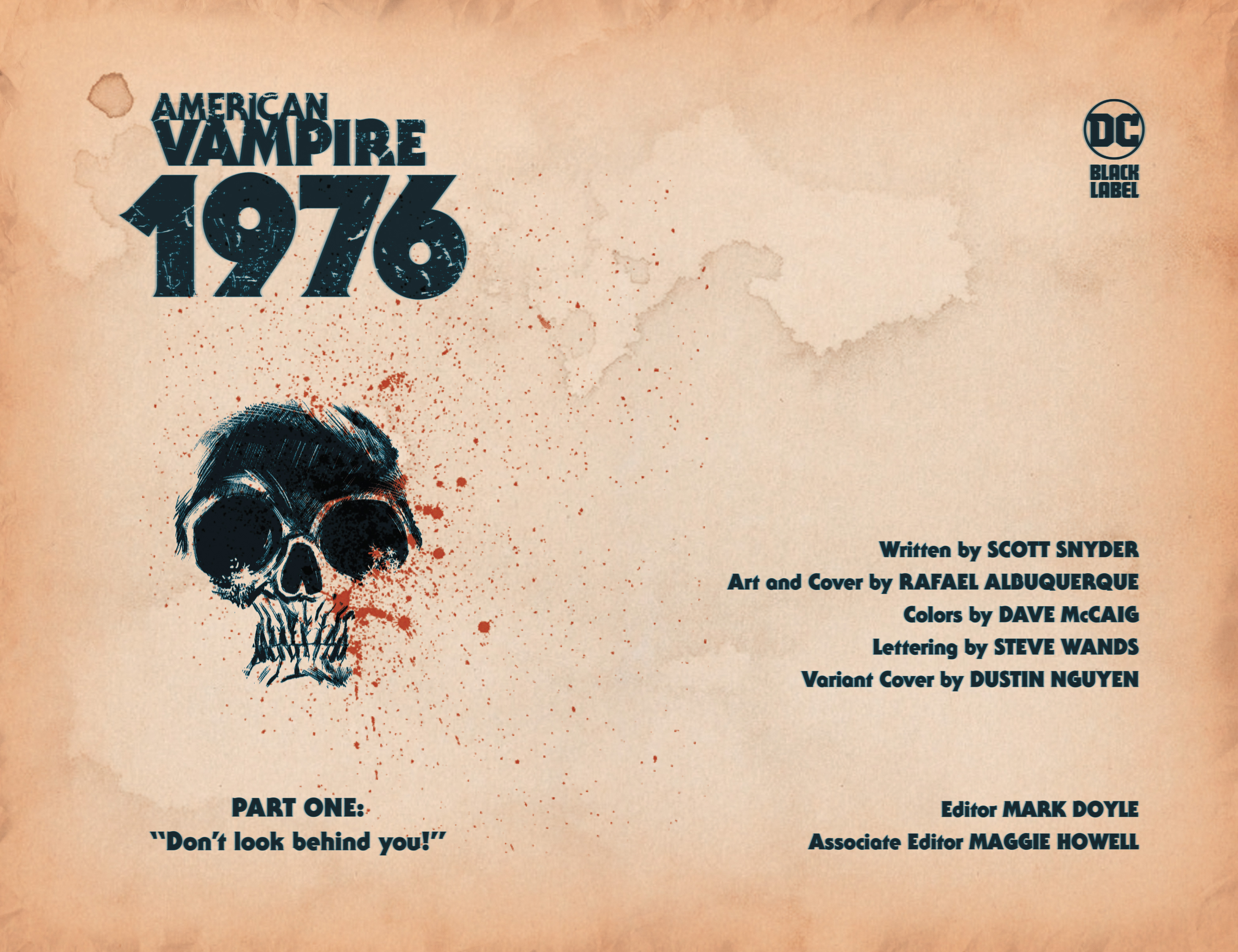
We're bringing it up to the present. It ends in 1976 then it has a coda that takes you to now, and you see which characters have survived. Then it'll set Rafael and I up to be able to return to this series when we choose to do more modular stories that take place now but look back at history. It will be stories like a mystery in the present taken on by the Vassals of the Morning Star, but that is informed by something that happened 500 years ago in the American South before we were established.
We have all these ideas for things like that, but the format of the series will change instead of being one long driving soap opera, coming towards the present, it will be in the present and be able to be more modular and more single stories.
Nrama: As a lady of the '20s and with the '70s being a huge moment for women's rights and more women in the workforce, are these elements you explore with Pearl?
Snyder: Pearl mentions it multiple times. It's in the air a lot and she's taken over the Vassals of the Morning Star. She runs the whole organization at this point. So, she talks a lot about it being a really important flashpoint in history for change.
I think a lot of the series is about looking back at American history through this lens of horror and the supernatural, but using it as a way of almost getting into stuff underneath and what makes us monstrous at different moments. There are some amazing things to celebrate at these times of tremendous upheaval, change, turmoil, and volatility.
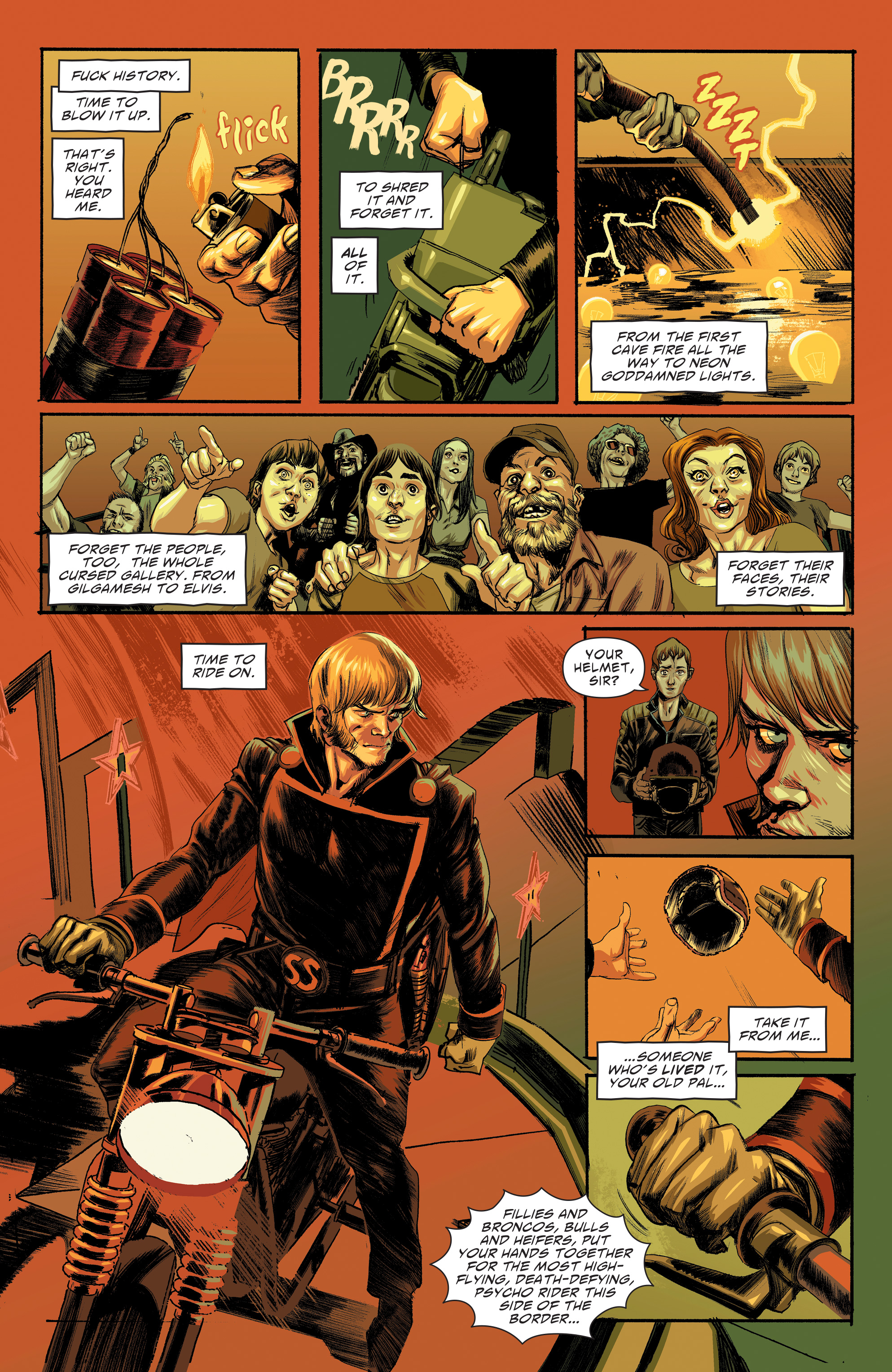
I think it speaks to a lot of things now. The idea that you have to recognize the past and you have to have very difficult moments to become better and to grow past a lot of the ugliness of history. Those are always really painful, difficult instances that will make us better on the other side.
Pearl is very much aware of that. To me, Pearl and Skinner are the double helix structure of the whole series.
What Pearl has come to realize over the course of the whole American Vampire journey is that in a lot of ways she hasn't changed. She's just realized who she's always been. She came to Hollywood as this young bright-eyed woman, but her goal was never to be a star. It's really clear in that first issue - her goal was to be part of something larger than herself. She wanted to be a part of a movie that would inspire people and be something that transported them and made them reach past their own lives in interesting ways.
She's never thought of herself as important in that way, and now I think she's coming into her own where she realizes she has this tremendous position of importance within the mythology of our series, but she sees herself, even more, the way she saw herself back then. She sees true heroism as being part of one epic, generational story and being a small part of that. Her heroism comes through that humility and the idea of living on through your actions rather than any kind of outsize chapter in history a name or as a big marquee figure.

Skinner is the opposite. Skinner has always been out to make a giant name for himself, however he could, and to sort of outrun death. He sees the promise of America, the promise of the West, the promise of all of it - being able to create your own legend, to be something larger than your contributions of your own actions.
His journey has been throughout the whole series more of an anti-hero's arc, but he goes from being someone who's really dark at the beginning of the series to somebody in this particular arc who is still quite dark, but he starts to realize that he always thought he needed Pearl so that he could win her over. He made Pearl because she reminded him of a disappointment from his past. But he was always amused by the idea of turning her to his darker perspective on things and what he starts to realize is that maybe he made her because she saw the best of himself in her. He's inspired by her and wants to be a better person. It's a lot of fun. Pearl is definitely aware of what's going on at the moment, and sort of reflective of that.
Nrama: Speaking of Pearl and Skinner, there's always been teases of romantic sparks. Is this something that you'll be exploring with this arc?
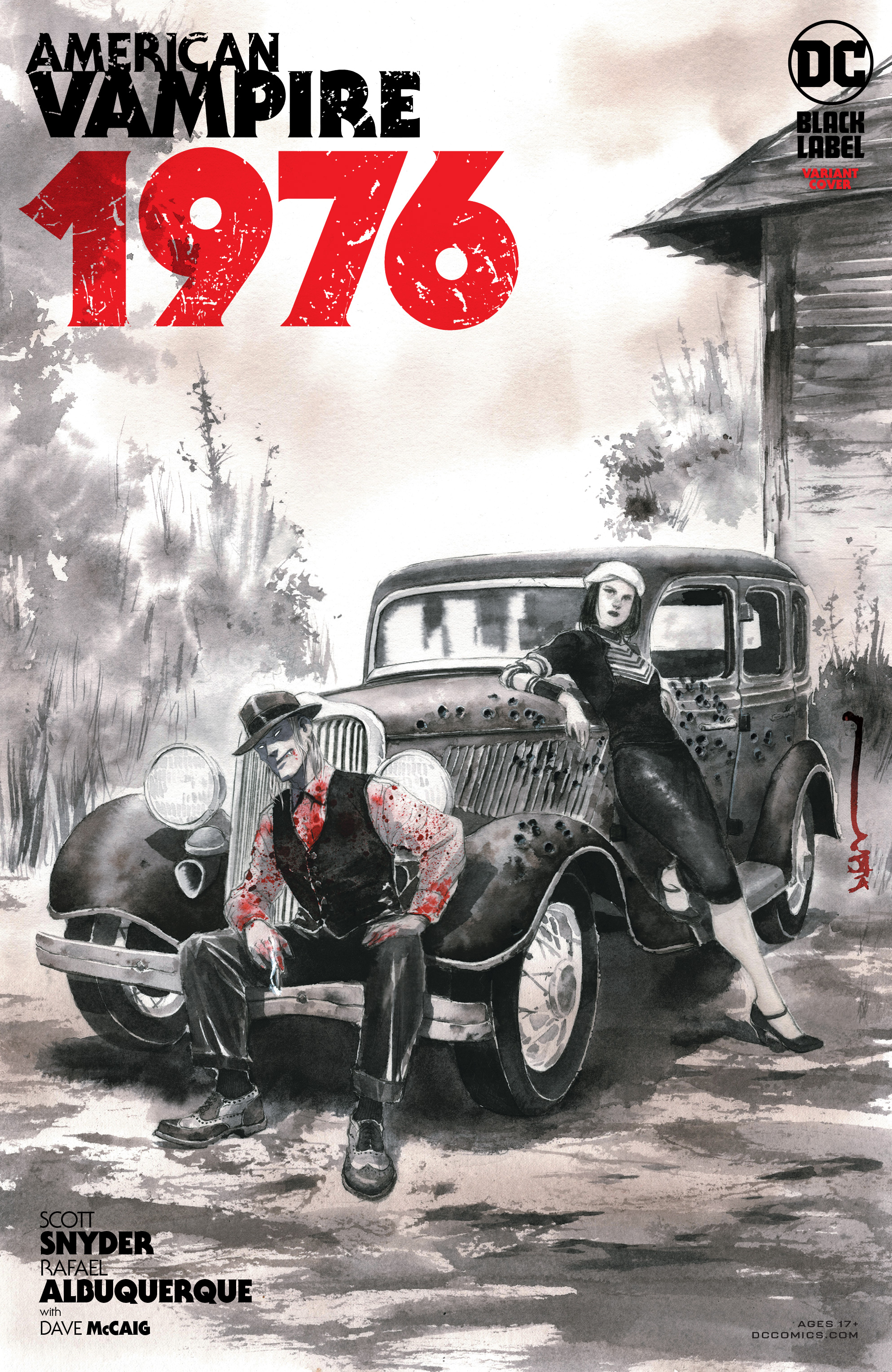
Snyder: I don't want to spoil too much, but they come into the story quite at odds. She learns that in an attempt to get back his immortality because he begins the arc as human after some mysterious stuff happened to him in our last arc where he was returning from space, like actual space. For some reason, the pure unadulterated solar light and UV radiation seem to have burned both viruses out of him - the American Vampire strain and the demonic one that he'd been infected with.
So, he's just playing human now. He went to the group that they're at odds with, that are sort of the big bads of the whole series, The Tongue that worship the first monster, which is this evil kind of worm-like creature called the Beast that's responsible for all of the terrible things throughout - responsible for the midst of hell, the devil, and all of this.
He went to the Tongue to try and get his mortality back is the rumor. So, she's very, very angry at him and disappointed in him. It's less romantic at the beginning as it is familial where she has a lot of love for Skinner, but she really is deeply upset at him and disappointed in him.
Nrama: For the first time this book is being published through the Black Label as it was previously a Vertigo book. Do you feel like there have been any differences publishing through the two different imprints?
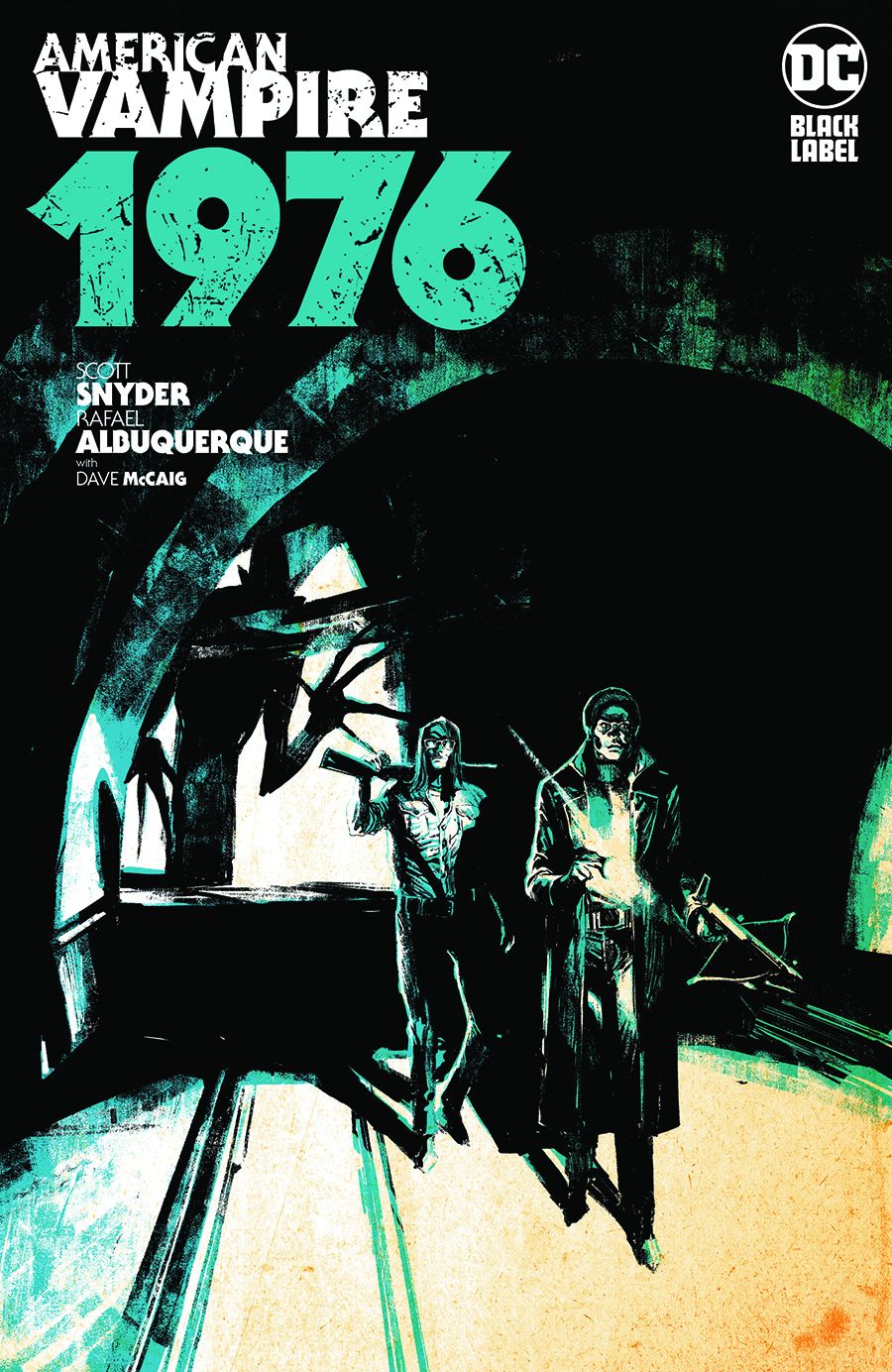
Snyder: There's nothing really different about it. The beauty of the book for us is that it really is the whole original team. [Editor] Mark Doyle is still working on it. It's going to be the last book he does in DC. Rafael obviously, but also Dave McCaig the colorist throughout the whole series, the Jared K. Fletcher, letterer throughout the whole series.
We have Maggie Howell, who's there now at Black Label as well who's terrific, but it's essentially our original team come back to do the book one more time before bringing it up to the present. It's been a joy. There hasn't been anything different about Black Label than Vertigo. It's the same people, same process. It's just a different cosmetic label on the cover, but we're still the same book.
Nrama: Would you like to bring more of your creator-owned titles to Black Label? Do you think Black Label will explore more creator-owned titles in general?
Snyder: Yeah, I just had a conversation with Jim Lee less than two weeks ago about that. The beauty for me with Best Jackett Press is to be able to make decisions with creative partners about the books that we're working on in regard to the best home for that specific project would be.
I have a bunch of things that I think are possible candidates for Black Label if the people I'm working with feels that's the best home as well. I love being able to be nimble with it and put books together and then decide with friends and partners on the book where we feel the best place to land would be and then doing it together.

Nrama: To wrap, what historic events can American Vampire fans look forward to in this volume?
Snyder: There's a lot. There are so many fun historical tidbits. Like there's a whole issue with the Freedom Train, which was a train that carried all kinds of American artifacts across the country to celebrate the 200th birthday of the United States. It was 15 cars long - everything from Abraham Lincoln's top hat to Judy Garland's ruby slippers was in it. There's a giant action sequence on that.
We talk about the first computers, floppy disks, and Elvis concerts out in Las Vegas. There's the election looming in '76 as well. We'll take you inside the White House. You learn about the development of the nuclear football. There are all kinds of crazy stuff, but 1976 just seems to really kind of speak to this moment in a very interesting way for us. So, this arc is jam-packed with fun historical elements.
The last thing I'll say about it is that I mean it sincerely, I'm so happy to be back on the series and it's not only my favorite book to work on, but this is my favorite arc and Rafael's too. We're five issues into it already. We're working on six and seven right now, and we're having such a good time and I think we're going to add an extra one that's short stories about the characters. It's a blast! So, I hope people enjoy it. We are really thrilled to be back at it.
Kat has been working in the comic book industry as a critic for over a decade with her YouTube channel, Comic Uno. She’s been writing for Newsarama since 2017 and also currently writes for DC Comics’ DC Universe - bylines include IGN, Fandom, and TV Guide. She writes her own comics with her titles Like Father, Like Daughter and They Call Her…The Dancer. Calamia has a Bachelor’s degree in Communications and minor in Journalism through Marymount Manhattan and a MFA in Writing and Producing Television from LIU Brooklyn.



